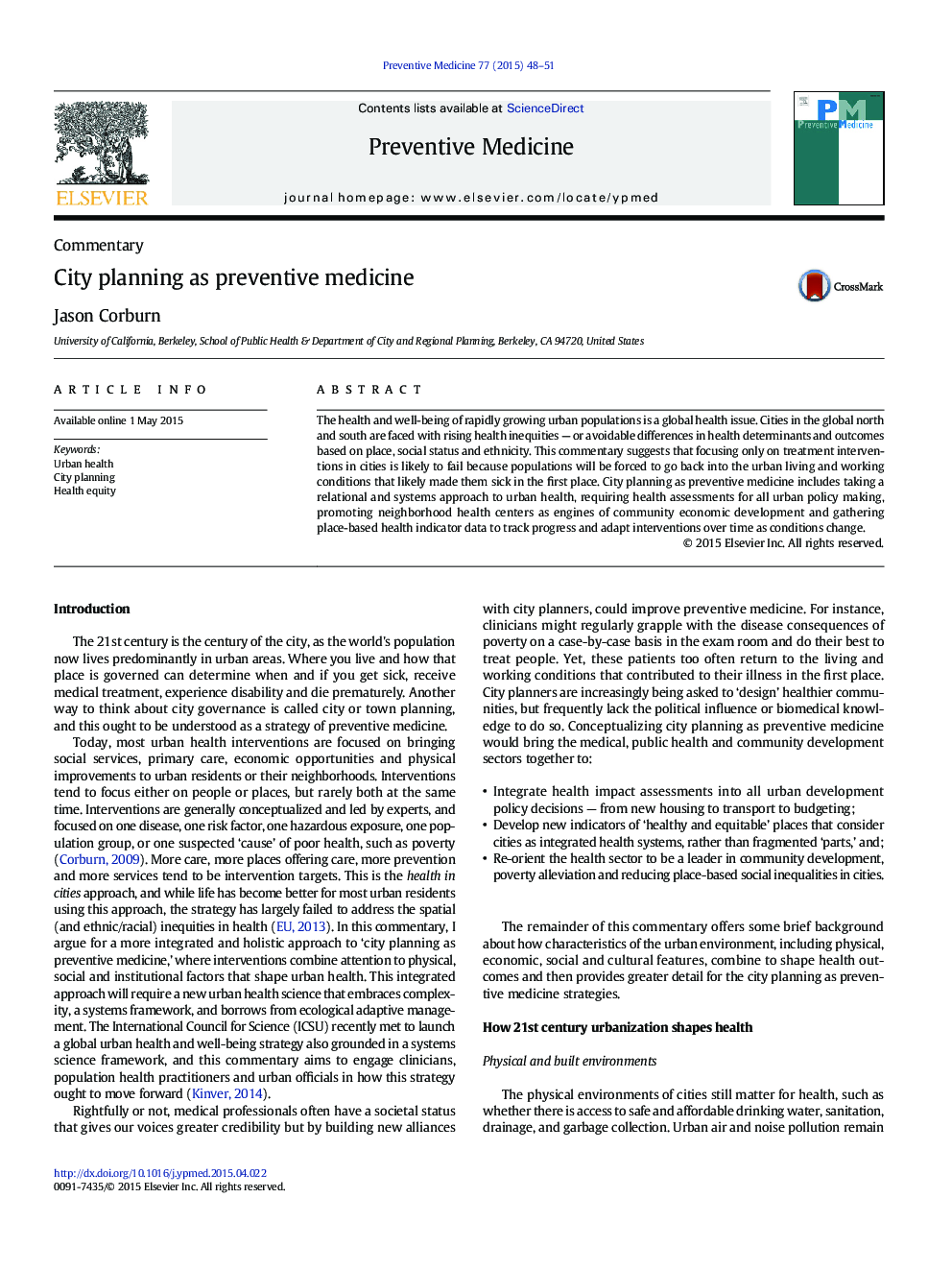| Article ID | Journal | Published Year | Pages | File Type |
|---|---|---|---|---|
| 6046705 | Preventive Medicine | 2015 | 4 Pages |
â¢Urban places are important determinants of health and opportunity for prevention.â¢City planning is a set of processes that shape place-based health resources.â¢Planners and clinicians can form partnerships to better prevent disease.â¢City planning as preventive medicine views places as integrated systems.â¢Place-based experiments that monitor progress can inform experimental practice.
The health and well-being of rapidly growing urban populations is a global health issue. Cities in the global north and south are faced with rising health inequities - or avoidable differences in health determinants and outcomes based on place, social status and ethnicity. This commentary suggests that focusing only on treatment interventions in cities is likely to fail because populations will be forced to go back into the urban living and working conditions that likely made them sick in the first place. City planning as preventive medicine includes taking a relational and systems approach to urban health, requiring health assessments for all urban policy making, promoting neighborhood health centers as engines of community economic development and gathering place-based health indicator data to track progress and adapt interventions over time as conditions change.
